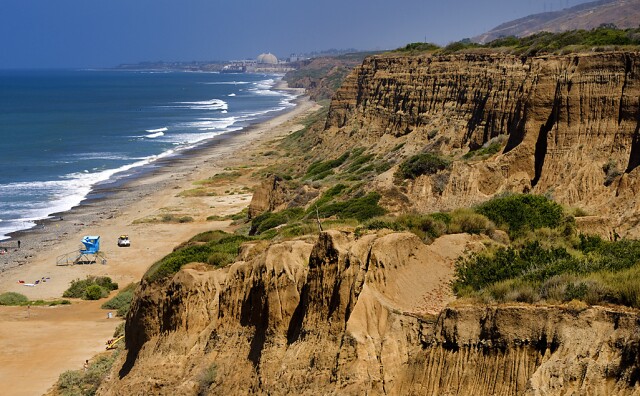Yes, We Have More Water … But Some Regulations Have Been Extended

The State Water Resources Control Board extended a drought rule that bans commercial businesses — including homeowners associations and rental properties — as well as government, industrial and institutional properties from using drinkable water to irrigate decorative grass.
The rule doesn’t apply to grass used regularly for recreation or spaces that use recycled water. As for single-family homes, the rules depend on where you live, so check with your local water agency.
The statewide rule will be extended for another year, unless the board votes to change it before then.
Though this winter dramatically improved our water supply situation, groundwater basins and the Colorado River are still stretched thin. And as the weather heats up, water use will go up too, stretching supplies for the next year.
This winter brought an end to the driest three-year period in California’s recorded history. Before our record wet weather, water agencies were close to adding more mandatory drought rules, possibly limiting indoor water use in some areas.
-
1 in 5 workers bound to agreements
-
We asked, and you had great suggestions
-
Ed Ruscha's works on display into October
As snow melts throughout the summer, that water will continue to fill our reservoirs as well as go to underground storage basins. But the climate crisis is driving a long-term drying trend, with California expected to lose at least 10% of its total water supply by 2040.
Long-term water supply fixes include transforming millions of acres of decorative grass and lawns to drought-tolerant landscapes, recycling more water, capturing more stormwater, improving water use efficiency and ongoing conservation measures.
Latest conservation data from the California State Water Resources Control Board
Additional ongoing drought rules
Additional existing state drought rules prohibit residences, commercial, industrial and institutional properties from:
- Outdoor watering that lets water run onto sidewalks and other areas.
- Washing vehicles without an automatic shutoff nozzle.
- Washing hard surfaces like driveways or sidewalks that don’t absorb water (use a broom instead).
- Filling decorative fountains, lakes, or ponds without a recirculation pump.
- Outdoor watering within 48 hours after at least 1/4 inch of rainfall.
- Watering decorative grass on public medians (unless recycled or non-drinkable water is used).
While some water agencies have lifted certain drought restrictions, others haven’t, including the L.A. Department of Water and Power (LADWP). LADWP customers can still only water outside twice a week. However, trees and food gardens can be given as much water as they need.
Depending on where you live, there may be more rules. Check with your local water agency for those.
Reporting water waste
Enforcement of these rules largely relies on people saying something when they see wasteful water use, according to state and local agencies. You can report wasteful water use or properties that may not be following these rules to the state here (fines of up to $500 per day can be given out after warnings).
You can report wasteful water use to your local water agency as well, usually listed on their website. LADWP customers can report water waste here or by calling 311.
-
Sandhill cranes are returning to the Lake Tahoe basin after a century long hiatus in what many say is a conservation success story.
-
Jackie’s partner, Shadow, refuses to abandon their unviable eggs, despite her attempts to nudge him along.
-
We do have some of the same types of buildings here.
-
Switching to an electric heat pump water heater can save you money and help the state avoid power outages.
-
The state's parks department is working with stakeholders, including the military, to rebuild the San Onofre road, but no timeline has been given.
-
Built in 1951, the glass-walled chapel is one of L.A.’s few national historic landmarks. This isn’t the first time it has been damaged by landslides.









